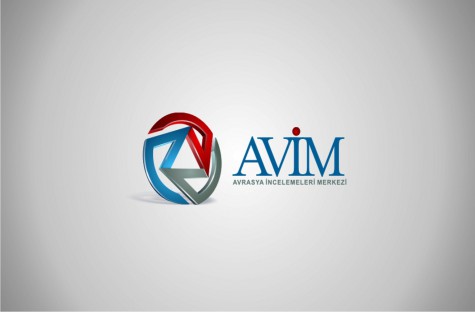
Maryna SHEVTSOVA*
AVİM
Having a long record of cooperation with the EU in the fields starting from fighting the climate change and human trafficking to the working on Middle East peace process, Russia is the biggest neighbor of the European Union and the third largest partner when it comes to international trade. The conflict in Ukraine, however, and the role Russia plays there led to the serious deterioration of EU-Russia relations. The EU reacted to the annexation of Crimea and further aggressive actions of Russia in the Eastern part of Ukraine by imposing sanctions in such areas as access to capital markets, defense, dual-use goods and sensitive technologies (including those in the energy sector). The EU also has suspended visa facilitation negotiations and numerous cooperation programs. On the 16th of March 2015, one year after illegal annexation of Crimea the EU declared that it “does not recognize and continues to condemn this act of violation of international law” and expressed its “deep concern at the continuous military build-up and deterioration of the human rights situation in the Crimean peninsula, including the denial of free speech and the persecution of persons belonging to minorities”.
At the same time one cannot underestimate existing mutual interdependence between the European Union and Russia. On the one hand, the EU is dependent on Russian energy supply, buying currently nearly one-third of natural gas from Gazprom. On the other hand, the EU is one of the most important export markets for Russian gas. It is worth mentioning that the half of the exported gas is being transported via Ukraine, which is also heavily dependent on the Russian energy. The gas talk, therefore, became a cornerstone of trilateral negotiations between Russia, Ukraine and the EU that took place on 20th of March in Brussels. The talk was defined by the Parties as a wrap up for the Winter Package - Binding Protocol regarding the conditions for gas delivery from the Russian Federation to Ukraine for the period from November 2014 until 31st of March 2015. The next winter supply preparations were also to be discussed. Interestingly, on the same day in Brussels the EU Summit took place. The Summit’s agenda included the Energy Union and Ukrainian crisis issues .
The Energy Union is an EU project launched in February 2015, partially as the reaction to Union’s dependence on Russian energy supplies, which became particularly obvious during the Ukrainian crisis. The project has five dimensions: energy security, internal energy market, energy efficiency, climate and research & innovation. While the Council of the EU stressed that all these dimensions are equally important, at the Summit some of them were pointed out in the Council’s conclusion for immediate action. Those are, in particular, acceleration of infrastructure projects to ensure energy security and a well-functioning internal energy market; full implementation and enforcement of existing energy legislation; reinforcement of the legislative framework for the security of supply for electricity and gas; ensurance of full compliance with EU law of all agreements related to the buying of gas from external suppliers; assessment of the options for voluntary demand aggregation mechanisms in full compliance with WTO and EU competition rules; and development of a more effective, flexible market design. The Vice President of the European Commission Maroš Šefčovič called the Energy Union “undoubtedly the most ambitious energy project” in the EU’s history.
It seems that the tense relations with the Russian Federation led to prioritizing by the Energy Union of such issues as diversification of gas supply and increase of the resilience to supply disruption as well as closer attention to the transparency of energy costs and prices. The latter is related to lasting for more than two and a half year EU anti-trust investigation which is focused on possible division by Gazprom of European gas markets by hindering the free flow of gas across member states; prevention by Gazprom of the diversification of gas supply and imposition of unfair prices on its customers by linking the price of gas to oil prices. Apart from that, the Council confirmed its commitment to improving EU resilience by speeding up the installation of new interconnections between member states as part of a broader push on infrastructure projects to boost energy security. However, to the European Commission’s disappointment EU leaders removed the clause in the final Council statement that would formally give the Commission new vetting powers over bilateral energy deals negotiated with third countries. The drive for this step derived from a series of inter-governmental agreements signed by Russia and six EU countries; Bulgaria, Hungary, Greece, Slovenia, Croatia and Austria.
While all these developments may eventually lead to the enhanced and diversified energy policy of the European Union, it will apparently take some years. This is why gas negotiations with Russia on 20th of March were of utmost importance for the EU. The meeting in Brussels was chaired by the current Vice President of the European Commission, in charge of Energy Union Maroš Šefčovič and attended by the Minister for Energy of the Russian Federation Alexander Novak and the Ukrainian Minister for Energy and Coal Industries Vladimir Demchyshyn. The meeting was finalized by the joint statement, which included, among others, following points:
- All the Parties agree on the Winter package being implemented and allowing “for the necessary gas flows securing both the domestic consumption in Ukraine and undisrupted transit to the EU”;
- The preparations for the next winter will be started immediately;
- Russia agreed to consider a discount to the price of natural gas while Ukraine agreed to consider to purchase the required amount of gas necessary for the storage filling and to ensure reliable gas transit to the EU;
- The EU agreed to consider helping Ukraine finding the adequate financial support to purchase gas.
The next round of the negotiations is scheduled for April 13-14 and will take place in Berlin, where the conditions for ‘summer package’ – the protocol with the conditions of summer supplies to replace the current gas supply agreement – will be discussed. Until then, starting from the 1st of April 2015 Ukraine will stop buying gas from the Russian Federation since its price is higher than the price for the gas imported from the EU and currently there is no need to buy it from Russia.
The gas, though, is not the only economic concern of the Russian government with regard to the relations with the EU and Ukraine. Russia is very keen on resuming the negotiations with the EU on the implementation of the EU-Ukraine association agreement. Russia is preoccupied with the sections on trade and economics, technical regulations and requirements of veterinary and phytosanitary supervision as commented the Russian Minister of Economic Development Alexey Ulyukayev. He insisted that “Russia will have to protect its market if no changes take place in the implementation process of the EU-Ukraine association agreement”. Ulyukayev also stressed that if the concerns of Russia will not be addressed correspondingly, Russia will have to take corresponding measures to protect its economy, including the custom tariff increase. Russia agreed with the EU to transfer gradually their mutual disputes within the WTO framework to the pre-trial and consultations level and try to reach agreement on bilateral basis. The time and venue of the next trilateral ministerial meeting are to be named in the nearest future.
The conditions described above: energy supply interdependence, geopolitical situation and close trade and economic cooperation make the position of the EU in the Ukrainian-Russian conflict more complicated than it might seem. Even though on 13th of March 28 the Council of the European Union declared prolongation of the application of EU restrictive measures targeting action against Ukraine's sovereignty, territorial integrity and independence it does not look like all 28 Member-states are equally satisfied with it. While it was only Greece who objected openly against the sanctions imposed on the Russian Federation other countries, such as Spain, Hungary or Cyprus, continue investing into bilateral relations with Russia and might be more reluctant to go on with sanctions if it has negative consequences for their economies.
As the experts argue, further developments of the Russia-EU-Ukrainian triangle substantially depend on how prepared the EU is to stick to declared policy of increasing gas import diversification and overall cut dependence on Russia. It is not the question of the economic calculation only but rather a matter of strategic vision and political will-power of the EU member-states, especially those actively involved in the bilateral cooperation with Russia. Will they be able to resist Russian pressure and shape national energy strategy in the compliance with the EU common policy? This for now remains to be seen.
*Ms. Maryna Shevtsova is a Doctoral Researcher, Berlin Graduate School of Social Sciences (BGSS, EDPIII Program), Humboldt-Universität zu Berlin & Guest Researcher at European Studies Center, Middle East Technical University, Ankara
[1] For more detailed information see, for example, European Union External Action web-site at http://eeas.europa.eu/russia/index_en.htm . Accessed on 27.03.2015.
[1] Declaration by the High Representative on behalf of the EU on Crimea by the European Council and the Council of the EU at http://www.consilium.europa.eu/en/press/press-releases/2015/03/16-declaration-high-representative-crimea/, accessed on 27.03.2015.
[1] “Inaugural trilateral EU-Russia-Ukraine meeting on gas” European Commission Press release Database as pof 20.03.2015 at http://europa.eu/rapid/press-release_IP-15-4649_en.htm, accessed on 27.03.2015
[1] European Commission. 2015. Energy Union Package Communication From The Commission To The European Parliament, The Council, The European Economic And Social Committee, The Committee Of The Regions And The European Investment Bank. Available at http://ec.europa.eu/priorities/energy-union/docs/energyunion_en.pdf. accessed on 27.03.2015
[1] European Council Conclusions on the Energy Union (19 March 2015) at http://www.consilium.europa.eu/en/press/press-releases/2015/03/conclusions-energy-european-council-march-2015/, accessed on 27.03.2015
[1] EU seeks to create single European energy market. Euronews on 25.02.2015 at http://www.euronews.com/2015/02/25/eu-seeks-to-create-single-european-energy-market/ accessed on 27.03.2015
[1] Vestager: Commission ready to move forward with Gazprom probe. Euractiv on 19.02.2015 at http://www.euractiv.com/sections/energy/vestager-commission-ready-move-forward-gazprom-probe-312250 accessed on 27.03.2015
[1] Ibid.
[1] Commission wants to vet member states’ energy deals. Euractiv on 19.02.2015 at http://www.euractiv.com/sections/energy/commission-wants-vet-member-states-energy-deals-312198 accessed on 27.03.2015
[1] Joint Press Statement Trilateral gas talks Brussels, 20 March 2015, can be downloaded from http://europa.eu/rapid/press-release_IP-15-4649_en.htm
[1] S pervogo aprelia Ukrayna pryostanovyt pokupku gaza u Rossyy (Ukraine will temporarily stop byuing gas from Russia starting from the 1st of April) Korrespondent as of 23.03.2015, at http://korrespondent.net/business/economics/3494425-s-pervoho-aprelia-ukrayna-pryostanovyt-pokupku-haza-u-rossyy, accessed on 27.03.2015
[1] EU, Russia agreed to resume trilateral negotiations on EU-Ukraine association agreement, TASS Russian news agency on 03.03.2015 at http://tass.ru/en/economy/780837, accessed on 27.03.2015
[1] ES i RF dogovorilis’ vozobnovit’ peregovory pro Associaciyu Ukrainy s ES (the EU and the Russian Federation agreed to resume the negotiations about the Association between the EU and Ukraine) Zn.ua at 03.03.2015 at http://zn.ua/ECONOMICS/es-i-rf-dogovorilis-vozobnovit-peregovory-po-associacii-ukrainy-s-es-168770_.html, accessed on 27.03.2015
[1] EU extends validity of sanctions over action against Ukraine's territorial integrity. Web-page of the Council of the European Union as of 13.03.2015 at http://www.consilium.europa.eu/en/press/press-releases/2015/03/13-eu-extends-validity-sanctions-ukraine/, accessed on 27.03.2015
[1] EU wins Greek backing to extend Russia sanctions, delays decision on new steps. Reuters as of 29.01.2015 at http://www.reuters.com/article/2015/01/29/us-ukraine-crisis-idUSKBN0L22B720150129, accessed on 27.03.2015
[1] Umbach, Frank. 2014. Russian-Ukrainian-EU gas conflict: who stands to lose most? NATO Review » Energy security: running on empty? » Russian-Ukrainian-EU gas conflict: who stands to lose most? At http://www.nato.int/docu/review/2014/NATO-Energy-security-running-on-empty/Ukrainian-conflict-Russia-annexation-of-Crimea/EN/index.htm, accessed on 27.03.2015
© 2009-2025 Center for Eurasian Studies (AVİM) All Rights Reserved
No comments yet.
-
 THE EU-RUSSIAN RELATIONS AND THE UKRAINIAN CONFLICT. THE ENERGY UNION, ASSOCIATION AGREEMENT AND GAS NEGOTIATIONS: WHOSE INTERESTS ARE AT STAKE?
THE EU-RUSSIAN RELATIONS AND THE UKRAINIAN CONFLICT. THE ENERGY UNION, ASSOCIATION AGREEMENT AND GAS NEGOTIATIONS: WHOSE INTERESTS ARE AT STAKE?
Maryna SHEVTSOVA 26.04.2015 -
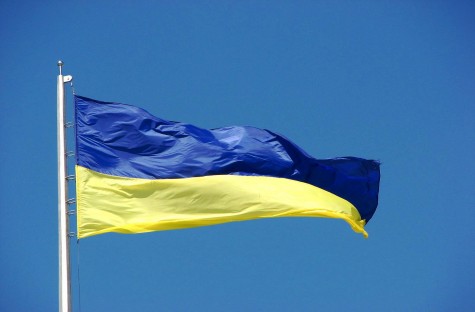 PROSPECTS FOR PEACE IN UKRAINE? SUMMIT IN MINSK: FROM AUGUST 2014 TO FEBRUARY 2015
PROSPECTS FOR PEACE IN UKRAINE? SUMMIT IN MINSK: FROM AUGUST 2014 TO FEBRUARY 2015
Maryna SHEVTSOVA 25.02.2015 -
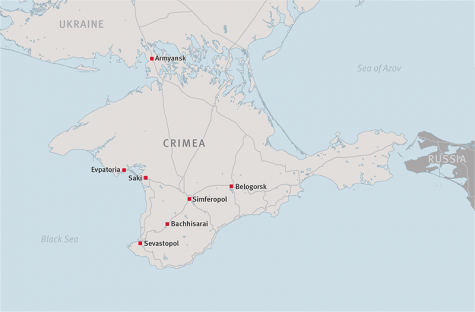 REPORT SUMMARY: HUMAN RIGHTS WATCH REPORT RIGHTS IN RETREAT: ABUSES IN CRIMEA
REPORT SUMMARY: HUMAN RIGHTS WATCH REPORT RIGHTS IN RETREAT: ABUSES IN CRIMEA
Maryna SHEVTSOVA 26.11.2014
-
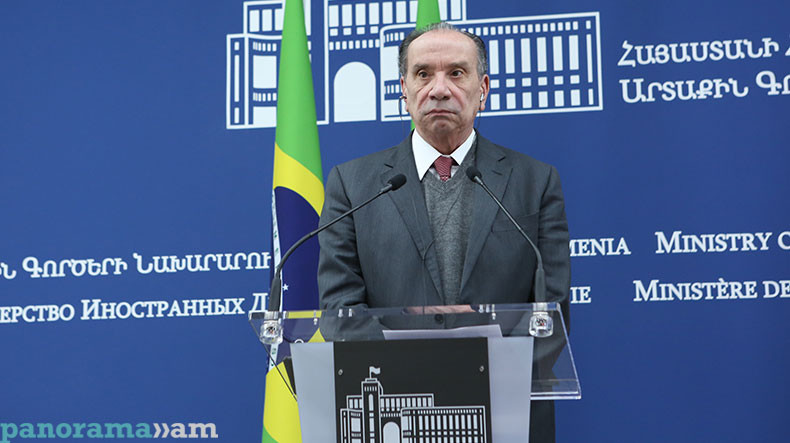 THE BRAZILIAN MINISTER OF FOREIGN AFFAIRS HAS DISAPPOINTED ARMENIA
THE BRAZILIAN MINISTER OF FOREIGN AFFAIRS HAS DISAPPOINTED ARMENIA
AVİM 22.11.2017 -
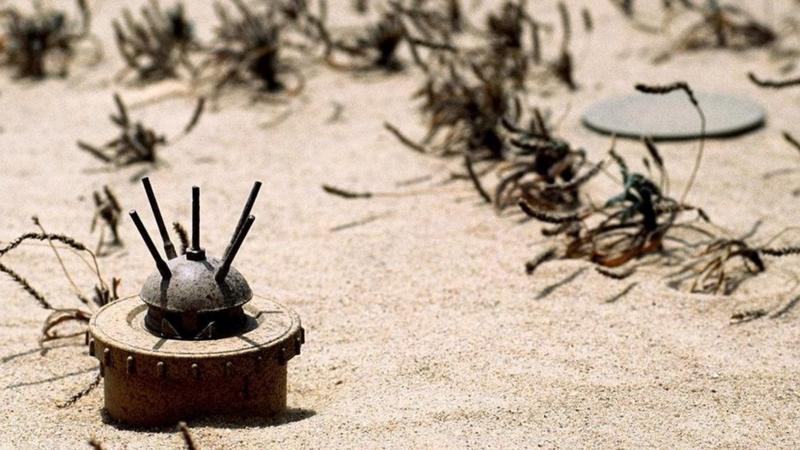 THE ISSUE OF MINE MAPS
THE ISSUE OF MINE MAPS
Tuğçe TECİMER 21.02.2024 -
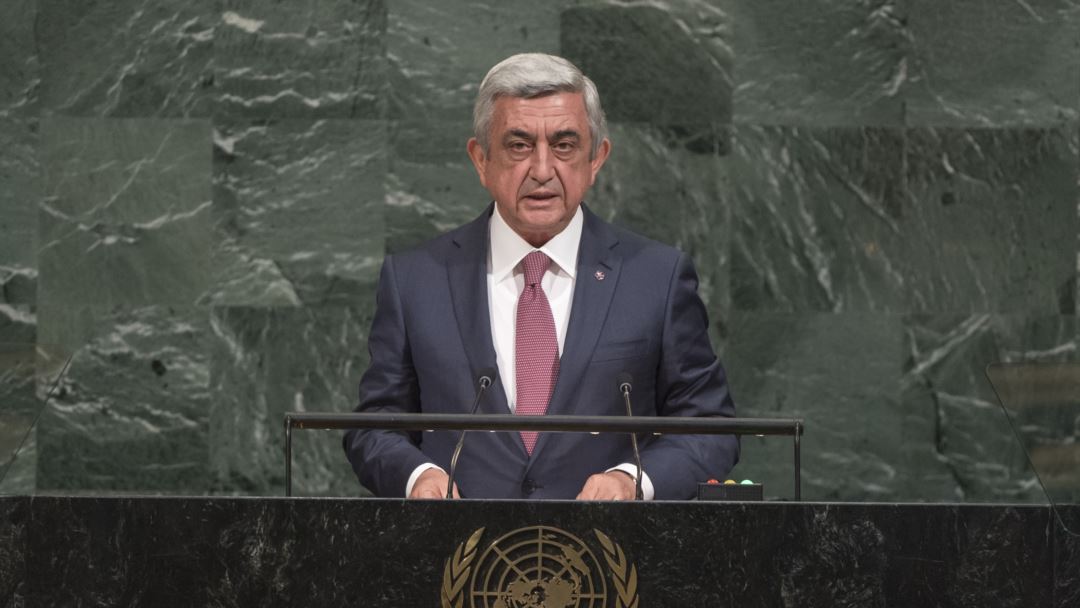 TURKEY IS ALWAYS ON SARKISYAN'S AGENDA
TURKEY IS ALWAYS ON SARKISYAN'S AGENDA
Hazel ÇAĞAN ELBİR 05.10.2017 -
FUTURE OF THE TURKEY-ARMENIA PROTOCOLS
Ömer Engin LÜTEM 24.01.2010 -
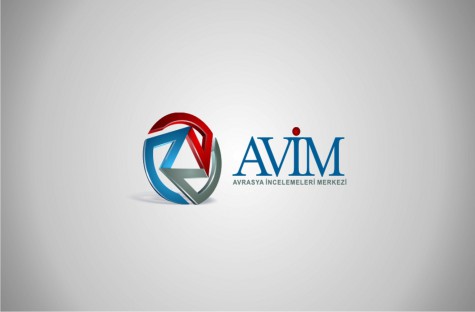 INTERNATIONAL HRANT DINK AWARDS AND TANER AKÇAM
INTERNATIONAL HRANT DINK AWARDS AND TANER AKÇAM
Mehmet Oğuzhan TULUN 30.09.2015
-
25.01.2016
THE ARMENIAN QUESTION - BASIC KNOWLEDGE AND DOCUMENTATION -
12.06.2024
THE TRUTH WILL OUT -
27.03.2023
RADİKAL ERMENİ UNSURLARCA GERÇEKLEŞTİRİLEN MEZALİMLER VE VANDALİZM -
17.03.2023
PATRIOTISM PERVERTED -
23.02.2023
MEN ARE LIKE THAT -
03.02.2023
BAKÜ-TİFLİS-CEYHAN BORU HATTININ YAŞANAN TARİHİ -
16.12.2022
INTERNATIONAL SCHOLARS ON THE EVENTS OF 1915 -
07.12.2022
FAKE PHOTOS AND THE ARMENIAN PROPAGANDA -
07.12.2022
ERMENİ PROPAGANDASI VE SAHTE RESİMLER -
01.01.2022
A Letter From Japan - Strategically Mum: The Silence of the Armenians -
01.01.2022
Japonya'dan Bir Mektup - Stratejik Suskunluk: Ermenilerin Sessizliği -
03.06.2020
Anastas Mikoyan: Confessions of an Armenian Bolshevik -
08.04.2020
Sovyet Sonrası Ukrayna’da Devlet, Toplum ve Siyaset - Değişen Dinamikler, Dönüşen Kimlikler -
12.06.2018
Ermeni Sorunuyla İlgili İngiliz Belgeleri (1912-1923) - British Documents on Armenian Question (1912-1923) -
02.12.2016
Turkish-Russian Academics: A Historical Study on the Caucasus -
01.07.2016
Gürcistan'daki Müslüman Topluluklar: Azınlık Hakları, Kimlik, Siyaset -
10.03.2016
Armenian Diaspora: Diaspora, State and the Imagination of the Republic of Armenia -
24.01.2016
ERMENİ SORUNU - TEMEL BİLGİ VE BELGELER (2. BASKI)
-
AVİM Conference Hall 24.01.2023
CONFERENCE TITLED “HUNGARY’S PERSPECTIVES ON THE TURKIC WORLD"









